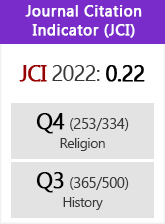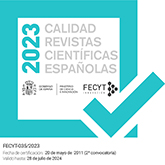Morisco books and Middle Eastern scholars
DOI:
https://doi.org/10.3989/alqantara.2010.v31.i2.244Keywords:
Marcus Dobelius, Miguel Casiri, Moriscos, Arabic books, Aljamiado, Orientalism, SkepticismAbstract
The aim of this paper is to show how the Orientalist scholarship of Christian Arabs who had come to Spain from the Middle East (via Italy) adressed the literature of the Moriscos, to examine how it was understood by such scholars and what they used it for. We show that these scholars, from among whom we have chosen the examples of Marcus Dobelius and Miguel Casiri, could not carry out their Orientalist work using the Arabic manuscripts of the El Escorial library without confronting the Morisco problem in the form of Morisco texts held in several collections confiscated by the Inquisition. The knowledge and activities of these Moriscos served to trace the broad outlines of an intellectual history of the Arabic language in Europe, in which Morisco activity was interppreted in relation to its linguistic and doctrinal variables. This was achieved by means of the construction of a scholarly discipline (Orientalism) at a time of religious polemic between the Reformation and the Counter-Reformation, i.e. during the period of the development of religious dissidence and skepticism in early modern Europe.
Downloads
Download data is not yet available.
Downloads
Published
2010-12-30
How to Cite
García-Arenal, M., & Rodríguez Mediano, F. (2010). Morisco books and Middle Eastern scholars. Al-Qanṭara, 31(2), 611–646. https://doi.org/10.3989/alqantara.2010.v31.i2.244
Issue
Section
Monographic Section
License
Copyright (c) 2010 Consejo Superior de Investigaciones Científicas (CSIC)

This work is licensed under a Creative Commons Attribution 4.0 International License.
© CSIC. Manuscripts published in both the printed and online versions of this Journal are the property of Consejo Superior de Investigaciones Científicas, and quoting this source is a requirement for any partial or full reproduction.All contents of this electronic edition, except where otherwise noted, are distributed under a “Creative Commons Attribution 4.0 International” (CC BY 4.0) License. You may read here the basic information and the legal text of the license. The indication of the CC BY 4.0 License must be expressly stated in this way when necessary.
Self-archiving in repositories, personal webpages or similar, of any version other than the published by the Editor, is not allowed.














